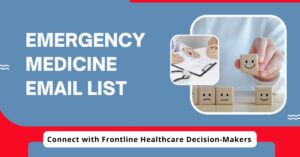In the digital age, healthcare is undergoing a major transformation—shifting from one-size-fits-all models to personalized experiences powered by custom health data. With the rise of electronic health records (EHRs), wearable devices, and health apps, organizations now have unprecedented access to individual-level insights that can improve outcomes and patient satisfaction.
But what exactly does personalization mean in the context of healthcare, and how can providers use custom health data to create more meaningful experiences?
1. Understanding Custom Health Data
Custom health data refers to detailed, patient-specific information collected from various sources—ranging from medical history and genetic profiles to lifestyle habits and wearable device metrics. Unlike generic datasets, this information is unique to the individual and can provide highly targeted insights into their health risks, needs, and preferences.
Sources of custom health data may include:
-
Electronic health records (EHRs)
-
Lab results and imaging
-
Remote patient monitoring devices
-
Fitness trackers and health apps
-
Genomic and biometric data
-
Patient-reported outcomes
2. Why Personalization Matters in Healthcare
A personalized healthcare experience doesn’t just mean addressing patients by name. It involves customizing treatment plans, communication, and follow-up based on the patient’s unique medical and behavioral profile. This approach leads to:
-
Better clinical outcomes through precise diagnosis and targeted treatment
-
Improved patient engagement by involving them in decisions
-
Higher satisfaction due to more relevant, empathetic care
-
Reduced readmissions with better follow-up and adherence
3. Applications of Custom Health Data in Personalization
Here’s how healthcare providers and systems are leveraging personalized data:
a. Tailored Treatment Plans
Clinicians can use real-time data to adjust medications, therapies, or interventions based on a patient’s condition or how they respond to treatment. For example, a diabetic patient’s insulin dosage can be optimized using continuous glucose monitoring data.
b. Predictive Analytics for Proactive Care
Machine learning models can analyze a patient’s data to predict potential health risks—like heart disease or stroke—allowing for timely intervention before issues escalate.
c. Behavioral Insights for Lifestyle Coaching
Health apps and wearables track physical activity, sleep, diet, and more. Providers can use this information to offer personalized lifestyle coaching, nudging patients toward healthier habits.
d. Customized Patient Communication
Using demographic, linguistic, and behavioral data, healthcare systems can personalize outreach—via email, SMS, or portal messaging—ensuring patients get the right information, at the right time, in the right way.
4. Challenges and Considerations
While the promise of personalized care is strong, implementing it comes with challenges:
-
Privacy and security concerns around handling sensitive data
-
Data interoperability between EHRs, devices, and third-party apps
-
Bias and equity in algorithms that might not represent all populations
-
Clinical adoption and staff training on using data meaningfully
5. The Future of Personalized Healthcare
As AI, big data, and genomics continue to evolve, personalization in healthcare will only deepen. Patients will expect tailored experiences much like they do from retail and tech brands. The key for healthcare organizations is to invest in secure data infrastructure, patient-centric tools, and ethical data governance.
Conclusion:
Custom health data is not just a trend—it’s the foundation for building more effective, human-centered healthcare. From predicting illness to personalizing recovery plans, using the right data can lead to better outcomes and more trust in the system.







